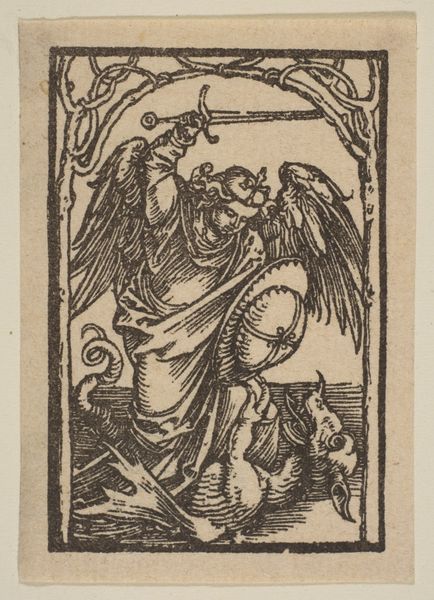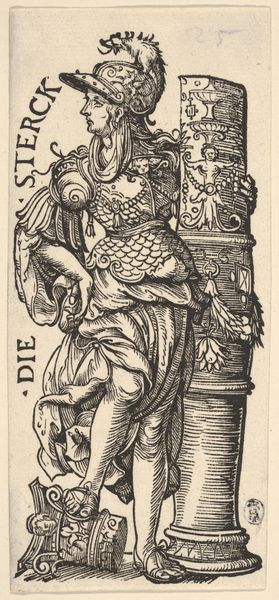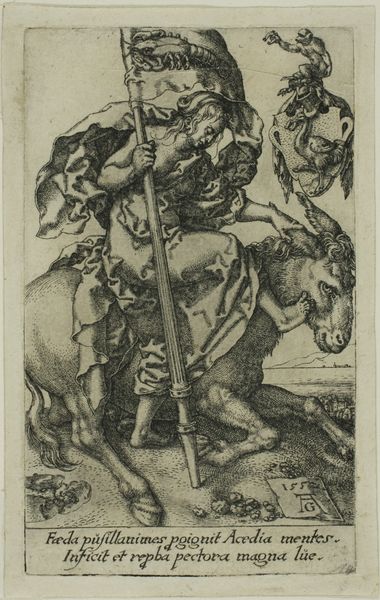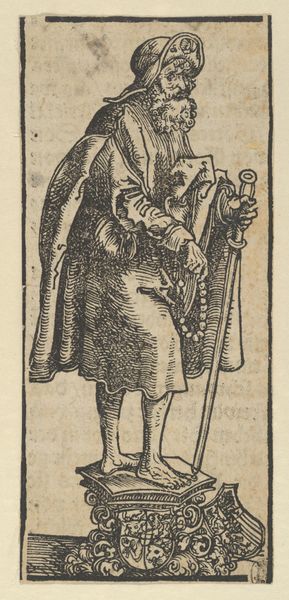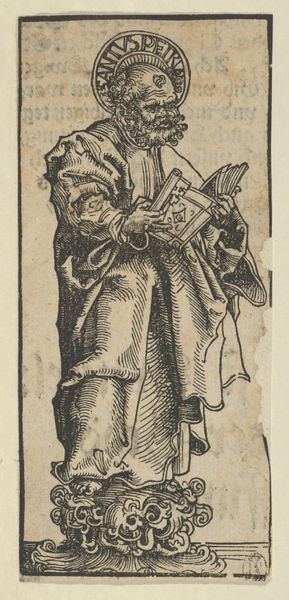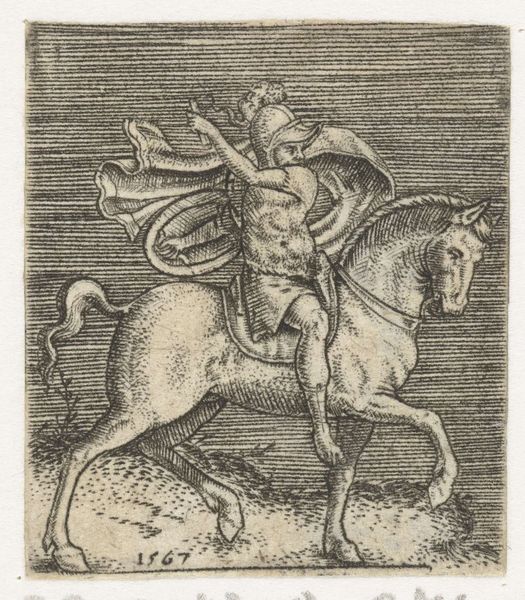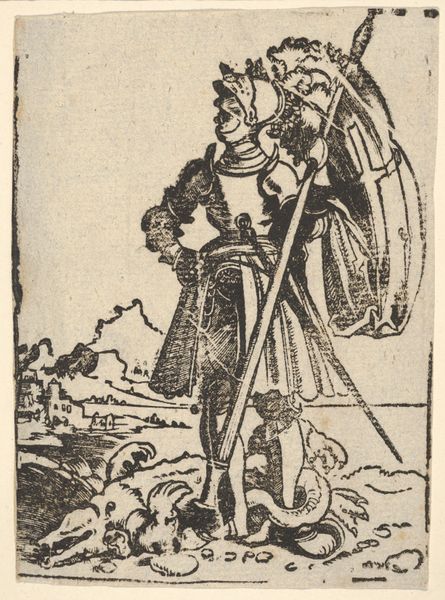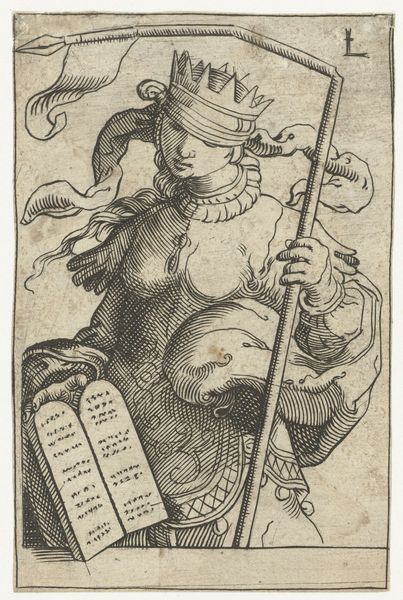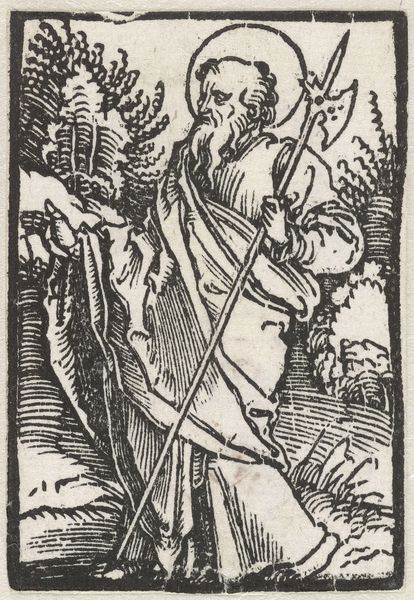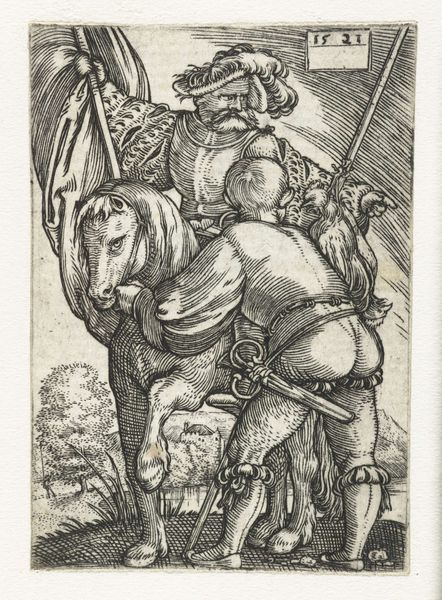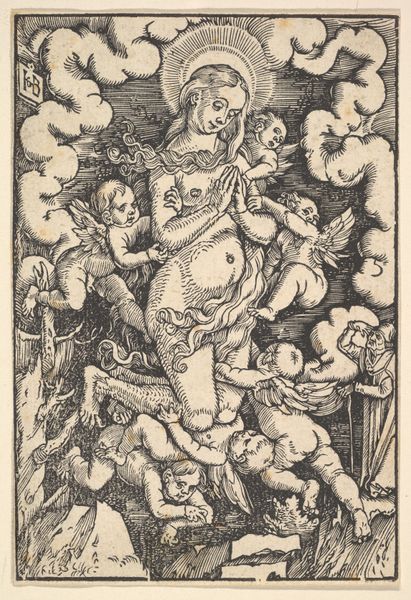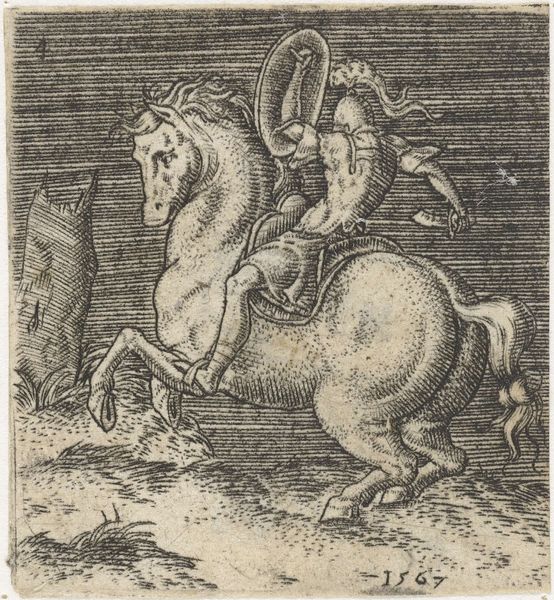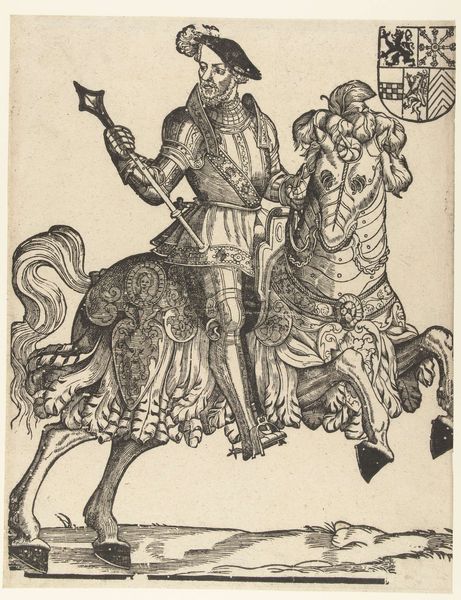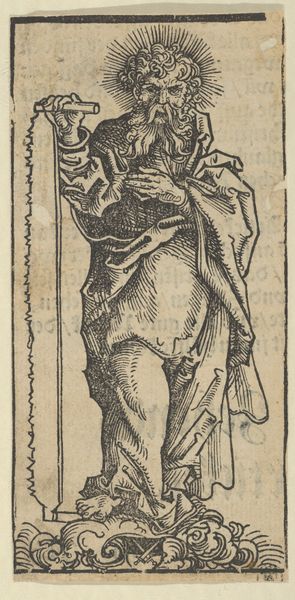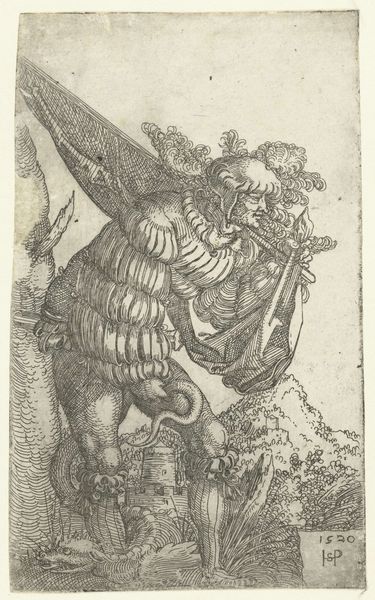
drawing, print, ink, engraving
#
portrait
#
drawing
#
pen drawing
# print
#
pen illustration
#
pen sketch
#
figuration
#
romanesque
#
ink
#
ancient-mediterranean
#
history-painting
#
engraving
Dimensions: height 85 mm, width 47 mm
Copyright: Rijks Museum: Open Domain
Isaac Vincentsz. van der Vinne created this portrait of Julius Caesar, using woodcut, some time around the late 17th and early 18th century. Notice how the stark contrast of black ink on a light background defines the figure. Lines, deeply etched, outline Caesar's form, from his laurel wreath to his segmented armor, giving the image a powerful sense of depth. Van der Vinne uses a series of vertical lines on Caesar's skirt and the standard behind him, contrasting with the eagle emblem on both shield and standard, creating a symmetrical balance within the composition. The use of the eagle motif, repeated on both the shield and the standard, serves as a signifier of power and authority, historically associated with Roman imperial symbolism. This iconographic choice invites us to consider how historical figures are constructed and how symbols are employed to convey messages about leadership, power, and cultural identity. Ultimately, this woodcut serves as a lens through which we can examine the enduring influence of classical antiquity and the strategies employed by artists to communicate complex ideas.
Comments
No comments
Be the first to comment and join the conversation on the ultimate creative platform.
